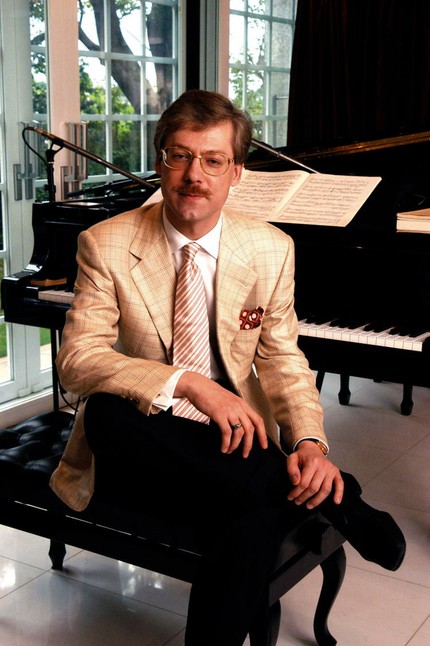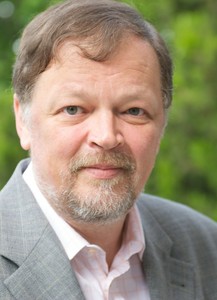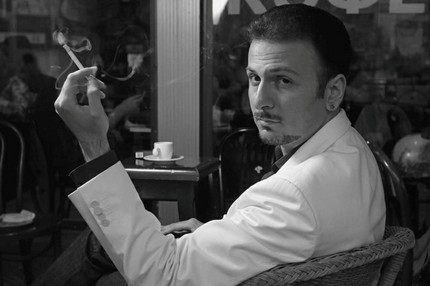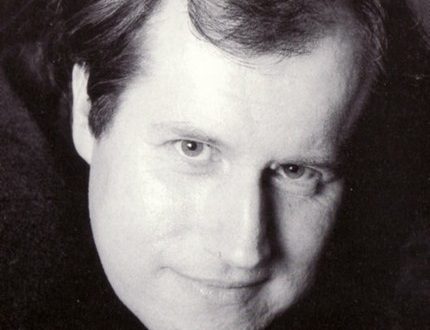
Stanislav Stanislavovich Bunin (Stanislav Bunin) |
Stanislav Bunin

In the new pianistic wave of the 80s, Stanislav Bunin very quickly attracted the attention of the public. Another thing is that it is still too early to draw any radical conclusions about the artistic appearance of a musician who is just embarking on an independent artistic path. However, Bunin’s maturation took place and is taking place according to the laws of modern acceleration, and it was not for nothing that many experts noted that already at the age of nineteen he was a true artist, able to instantly capture the attention of the audience, sensitively feel his reaction.
So, in any case, it was in 1983, when a young pianist from Moscow conquered the Parisians at the competition named after M. Long – C. Thibaut. Unconditional first prize, to which were added three special prizes. This, it seems, was quite enough to establish his name in the music world. However, that was only the beginning. In 1985, Bunin, already as the winner of a solid competitive test, gave his first clavier band in Moscow. In the review response one could read: “A bright pianist of a romantic direction has moved in our art … Bunin perfectly feels the “soul of the piano” … His playing is full of romantic freedom and at the same time is marked by elegance and taste, his rubato are justified and convincing.”
It is also characteristic that the young performer compiled the program of this concert from the works of Chopin – Sonata in B minor, scherzos, mazurkas, preludes … Even then, a student at the Moscow Conservatory was preparing for a responsible Warsaw competition under the guidance of Professor S. L. Dorensky. The Paris competition showed that Bunin’s stylistic range is quite wide. However, for any pianist, “Chopin’s test” is perhaps the best pass to an artistic future. Almost any performer who successfully passed the Warsaw “purgatory” wins the right to a large concert stage. And the words of the jury member of the 1985 competition, Professor L. N. Vlasenko, sound all the more weighty: “I don’t presume to judge whether it is necessary to rank him among the so-called “Chopinists”, but I can say with confidence that Bunin is a musician of great talent, a bright personality in the performing arts. He interprets Chopin in an extremely individual way, in his own way, but with such conviction that even if you do not agree with this approach, you involuntarily submit to the power of his artistic influence. Bunin’s pianism is impeccable, all concepts are creatively thought out to the smallest detail.
It is worth noting that then in Warsaw, in addition to the first prize, Bunin won most of the additional awards. Here is the prize of the F. Chopin Society for the best performance of a polonaise, and the National Philharmonic Prize for the interpretation of a piano concerto. There is nothing to say about the public, which this time was quite unanimous with the authoritative jury. So in this area, the young artist demonstrated the breadth of his artistic potential. Chopin’s legacy provides for this, one might say, unlimited possibilities. The pianist’s subsequent programs, which he offered to the judgment of Soviet and foreign listeners, speak of the same thing, not at all limiting himself to Chopin.
The same L. N. Vlasenko, analyzing his impressions, noted in a conversation with a correspondent: “If we compare Bunin with the winners of previous Chopin competitions, then, in my opinion, in terms of his artistic appearance, he is closest to Martha Argerich precisely in a very personal attitude to the performed music.” Since 1988 the pianist has been living and giving concerts abroad.
L. Grigoriev, J. Platek, 1990





